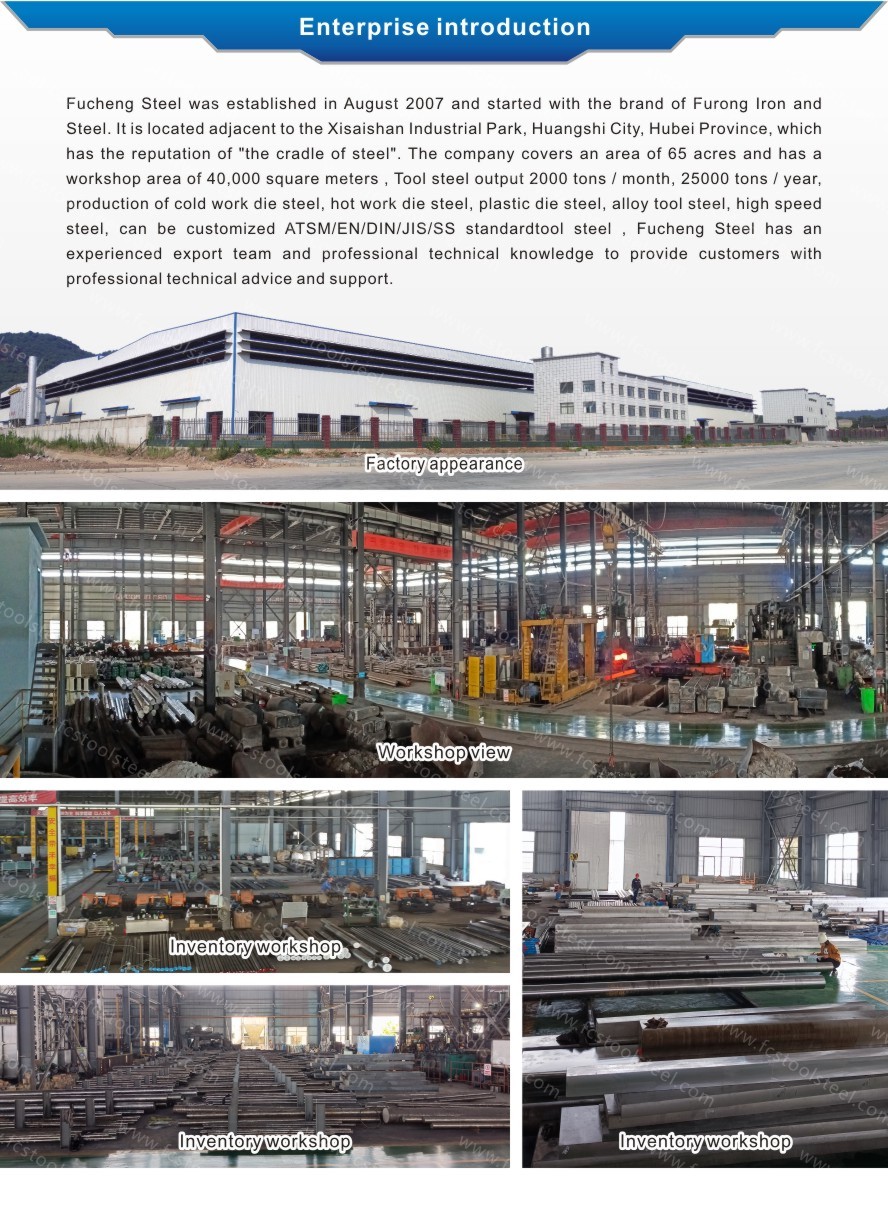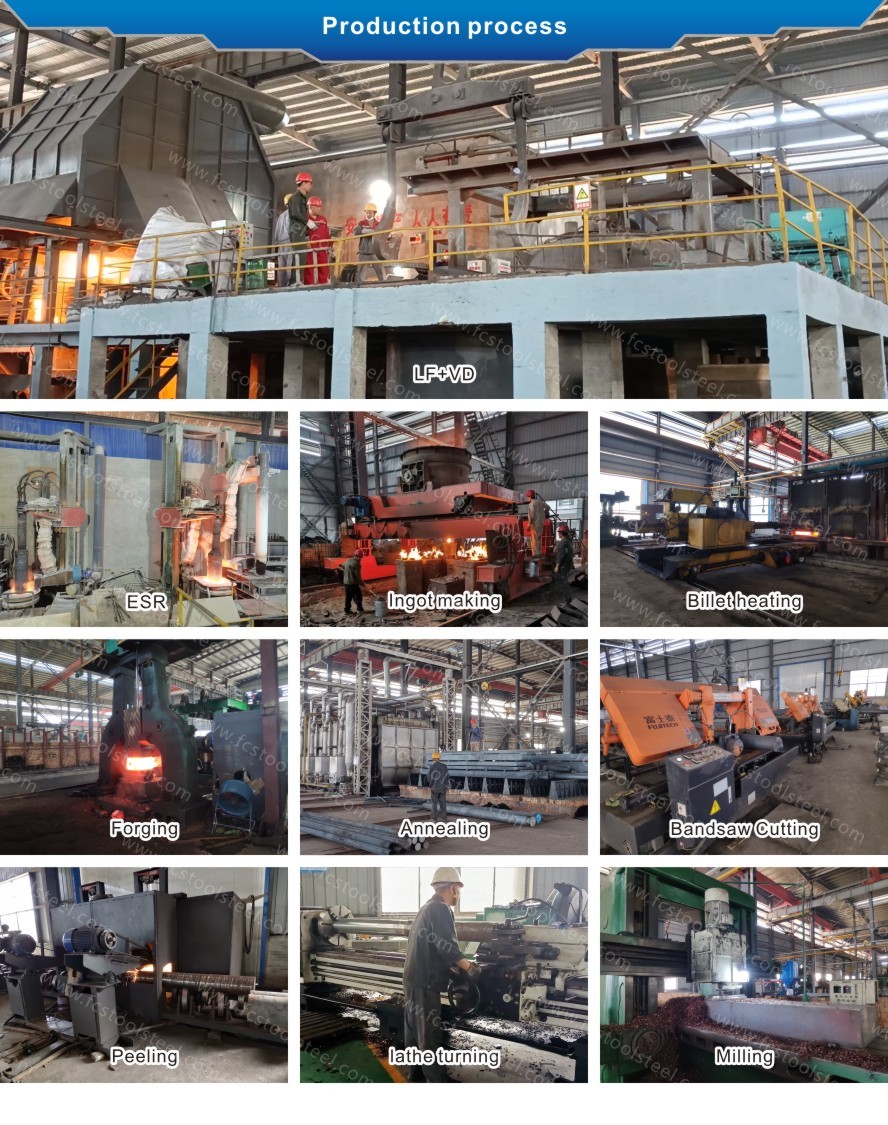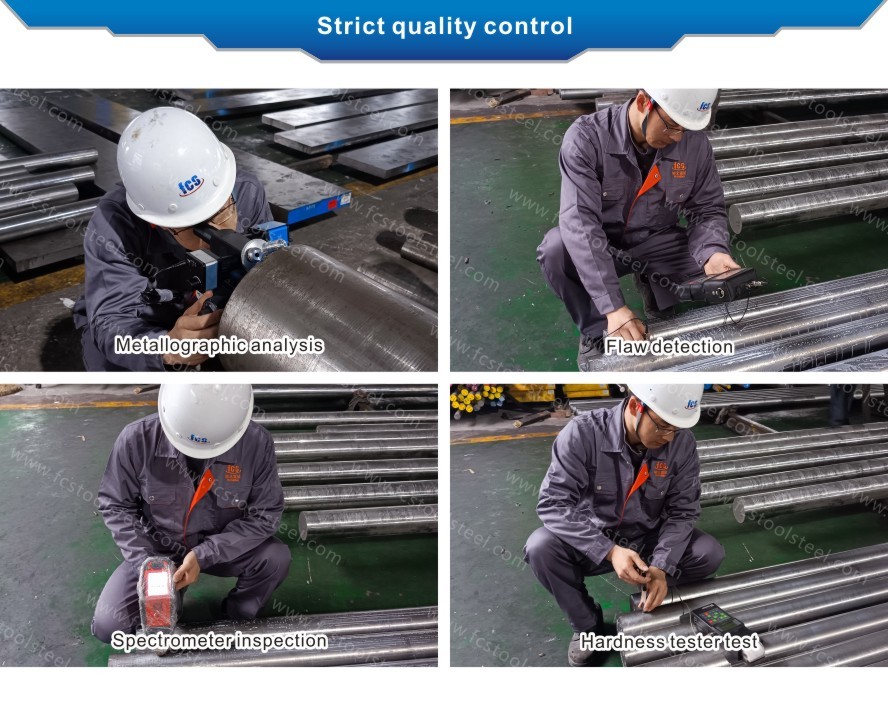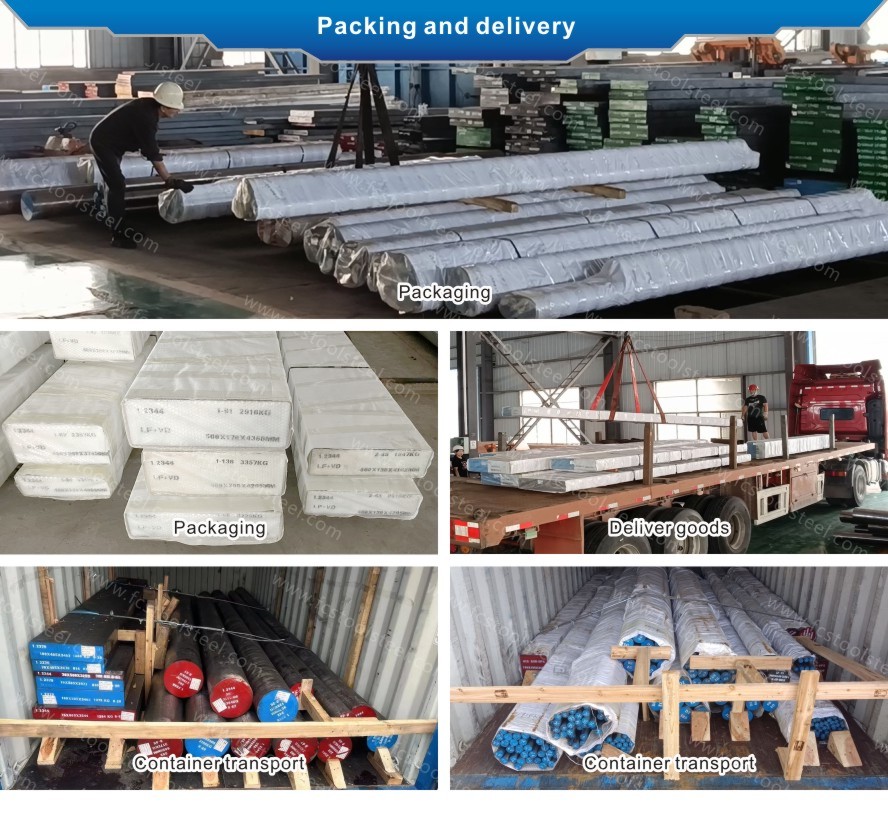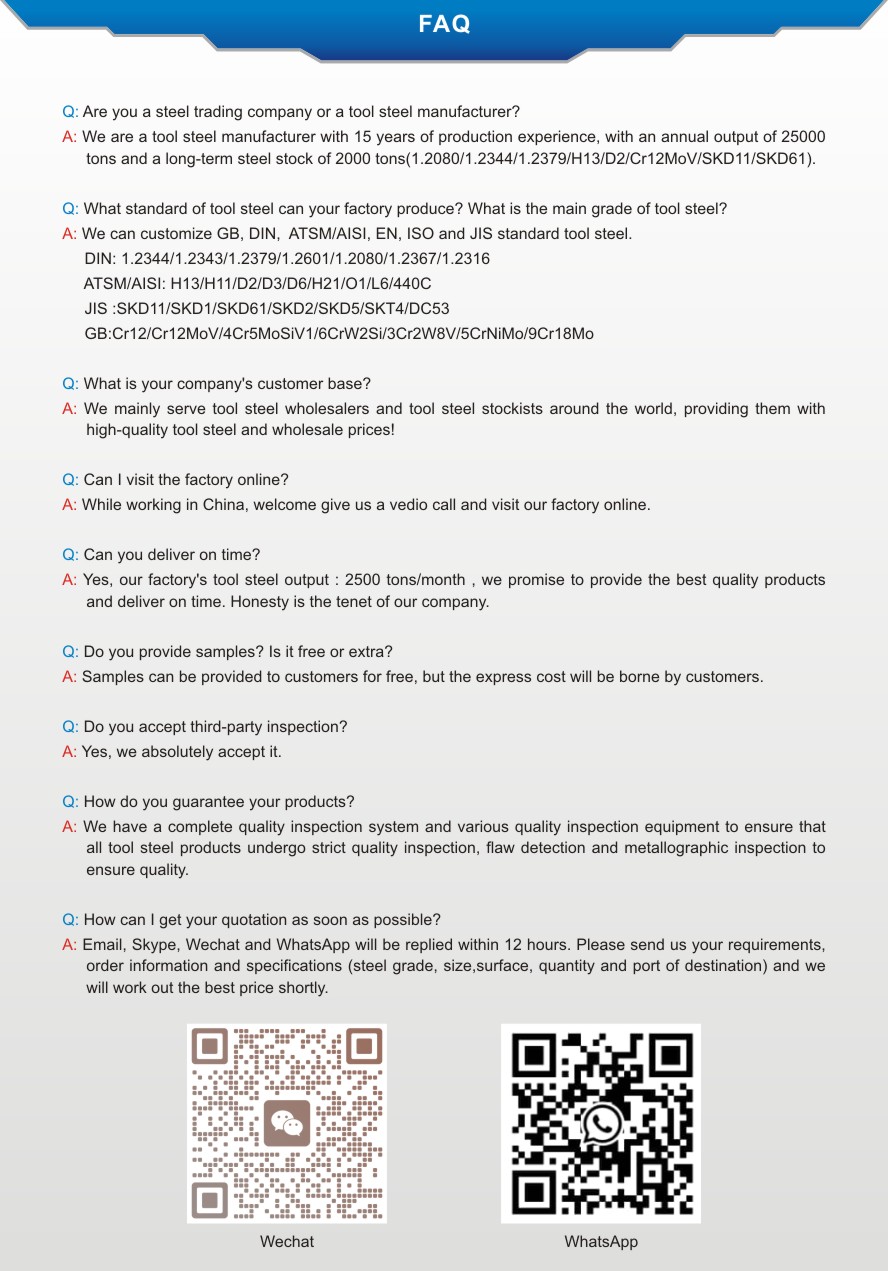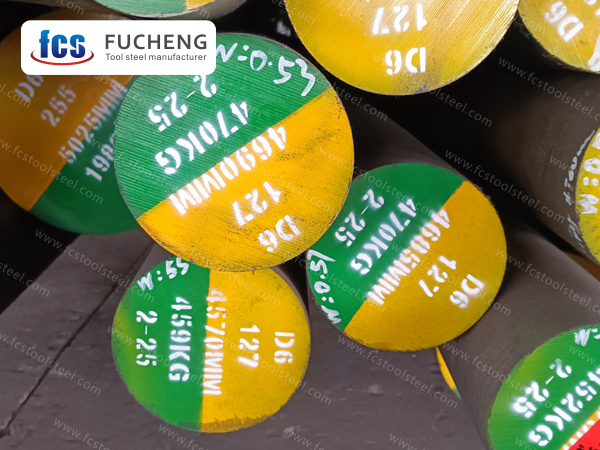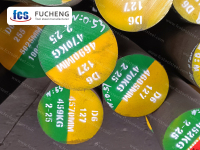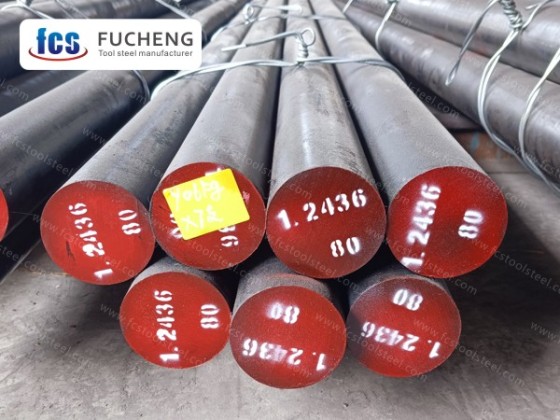
- Home
- >
- Products
- >
- FCS D6 Tool Steel
- >
FCS D6 Tool Steel
As a representative of high-end cold work die steel, D6 steel's core highlight lies in achieving excellent balance between wear resistance and crack resistance through high carbon and high chromium alloy design, and significantly improving dimensional stability through deep cryogenic treatment technology; D6 steel exhibits excellent deformation resistance and durability in harsh working conditions such as silicon steel sheet punching and precision processing of high-strength steel plates, while also possessing good corrosion resistance, making it an ideal choice for high-precision and high load mold manufacturing.
- fucheng steel
- China
- 1 Month
- 2000 Tons/Month
- Information
- Video
D6 TOOL STEEL
| Brand | FCS |
| Smelting and Manufacture Method: | LF+VD+Forged |
| Delivery Condition: | Annealed |
| Delivery hardness: | ≤255 HBS |
| UT Test Standard: | Sep 1921-84 Class3 D/d,E/e |
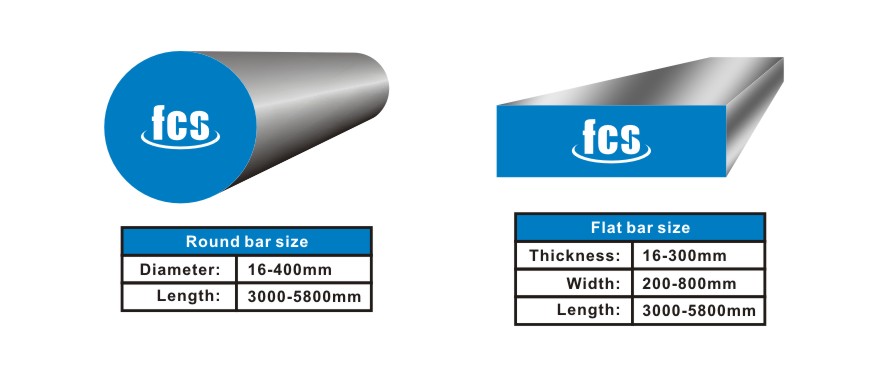
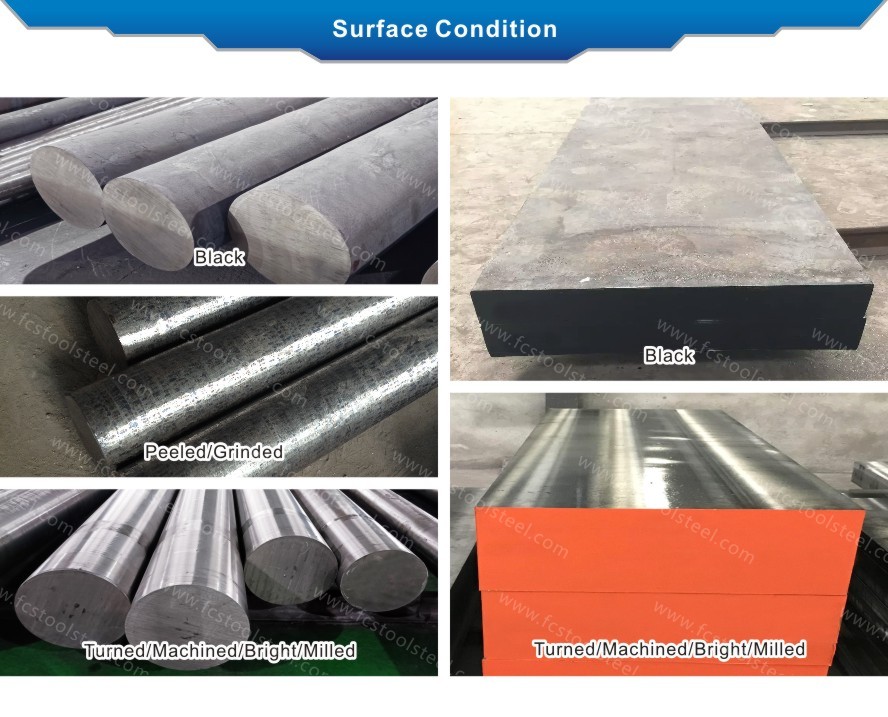
D6 STEEL GRADE COMPARISON AND CHEMICAL COMPOSITION COMPARISON
| Standard/Steel Grade | Chemical Composition(%) | |||||
| C | Si | Mn | Cr | W | ||
| ASTM | D6 | 2.00~2.20 | 0.35~0.50 | 0.20~0.40 | 11.50~12.50 | 0.60~0.90 |
| DIN/W-Nr. | X210CrW12/1.2436 | 2.00~2.25 | 0.10~0.40 | 0.15~0.45 | 11.00~12.00 | 0.60~0.80 |
| JIS | SKD2 | 2.00~2.30 | 0.10~0.40 | 0.30~0.60 | 11.00~13.00 | 0.60~0.80 |
APPLICATION
D6 steel, as a high carbon and high chromium alloy tool steel, is widely used in cold work stamping dies (such as silicon steel sheet punching dies, stretching dies), industrial cutting tools (heavy-duty shear blades, wire rolling dies), and special fields (thermosetting plastic forming dies, wear-resistant rolling rolls) due to its excellent wear resistance, high hardness, and thermal stability. D6 steel is particularly suitable for precision machining environments that require long-term maintenance of blade sharpness and dimensional accuracy. At the same time, its basic rust prevention ability also allows it to adapt to slightly humid working conditions.
D6 STEEL PROPERTIES
As a representative material of cold work die steel, D6 steel's high carbon and high chromium alloy design lays the foundation for super strong wear resistance. After heat treatment, the hardness easily exceeds 60HRC. D6 steel can maintain the sharpness of the cutting edge for a long time under harsh working conditions such as metal punching and extrusion, and its service life can reach 3-5 times that of ordinary alloy steel.
The compressive strength of D6 steel is particularly outstanding, and it can maintain structural integrity even under pressures above 2000MPa. The uniformly distributed carbide network in its microstructure can effectively block crack propagation in D6 steel, making the mold less prone to corner collapse under repeated impacts.
D6 steel can maintain stable performance in working environments below 300 ℃. The special alloy ratio enables it to maintain a hardness of 58HRC or higher during high-temperature tempering.
Although D6 steel has extremely high hardness, it can achieve good machinability through reasonable annealing treatment. The surface of D6 steel is not prone to micro cracks during electrical discharge machining, which is crucial for precision mold manufacturing.
After vacuum heat treatment, the fatigue limit of D6 steel is significantly increased, making it particularly suitable for making continuous molds for high-speed punching machines, with a service life 2-3 times longer than traditional materials.
D6 steel has stable dimensions and the heat treatment deformation can be controlled within 0.05%. This is crucial for multi cavity molds that require a precision of 0.01mm, which can significantly reduce the workload of subsequent mold repairs.
In terms of surface treatment compatibility, D6 steel can undergo surface strengthening such as TD treatment and PVD coating. After titanium plating treatment, the surface hardness of D6 steel can reach over 3000HV, and the friction coefficient is reduced to below 0.2, making it particularly suitable for precision punching of stainless steel thin plates.
In terms of maintenance, D6 steel molds only need to undergo regular low-temperature tempering to restore their performance. Compared to other tool steels, it has stronger resistance to stress corrosion and is less prone to stress cracking in humid environments.
